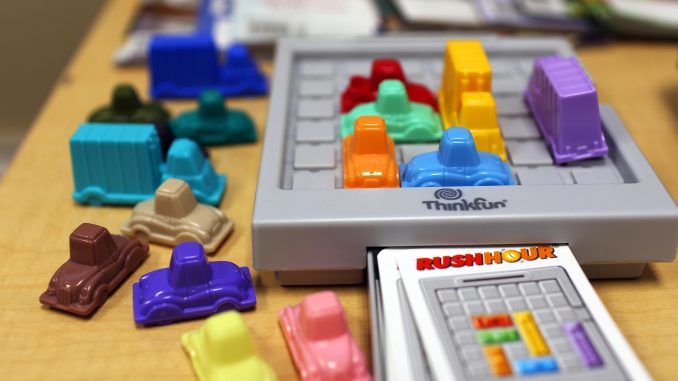
Dr. Chantelle Hart, an associate professor in the Department of Public Health, brought “Project Sleep Kids” to Temple last February. A year later, the study is still going strong.
“We know that over half the kids in this county do not get enough sleep, [and] we know as well that a good night’s sleep is associated with a number of benefits in children’s functioning,” Hart said. “The ultimate goal for the study is to determine whether or not we can help children get a good night’s sleep.”
Hart originally started “Project Sleep Kids” at Brown University in 2013. The study examines how to help children get more sleep each night and the ways an increased amount of sleep may affect mood, memory, cognitive functioning and overall general health – especially in regard to body mass index.
Researchers at Temple’s Center for Obesity Research and Education worked under guidance from Hart throughout last year to continue “Project Sleep Kids,” which has been funded by the National Heart, Lung and Blood Institute.
Children must be between eight and 11 years old and only get nine-and-a-half hours of sleep or less each night to participate in the study. Children in one group maintain current sleeping habits, while children in the other group increase their amounts of sleep.
The participants’ sleeping patterns are assessed multiple times during a span of two months, Hart said.
“All children who come into the study wear an actigraph, which is a device that helps us to estimate sleep,” Hart said. “In addition to that, they complete a sleep diary and they’re asked to call us twice daily during their assessment week. And so we use all that data to estimate how much they’re sleeping.”
Risha Khetarpal, who is currently completing her master’s degree in public health, is the study’s project director. She also serves as one of the research team’s interventionist. Each family has at least four meetings with these interventionists, in which they track and discuss their child’s progress.
“Both the kids and parents complete questionnaires,” Khetarpal said. “Kids have a couple different computer tests that they complete. Most of them are testing their cognitive functioning … and in addition to that [we] also go through data.”
Ashley Greer, assistant scientist for the project, collects and monitors the data from actigraphs and accelerometers. She then shares this data with the families.
“At every visit [the families] get to know how their kid’s performing,” said Greer. “We give them copies of all their information that we get from the devices.”
Thus far, about 70 children have participated in “Project Sleep Kids,” and Hart hopes to reach just over 100 participants by the end of 2015, when the study concludes.
Jenny Roberts can be reached at jenny.roberts@temple.edu.


Be the first to comment